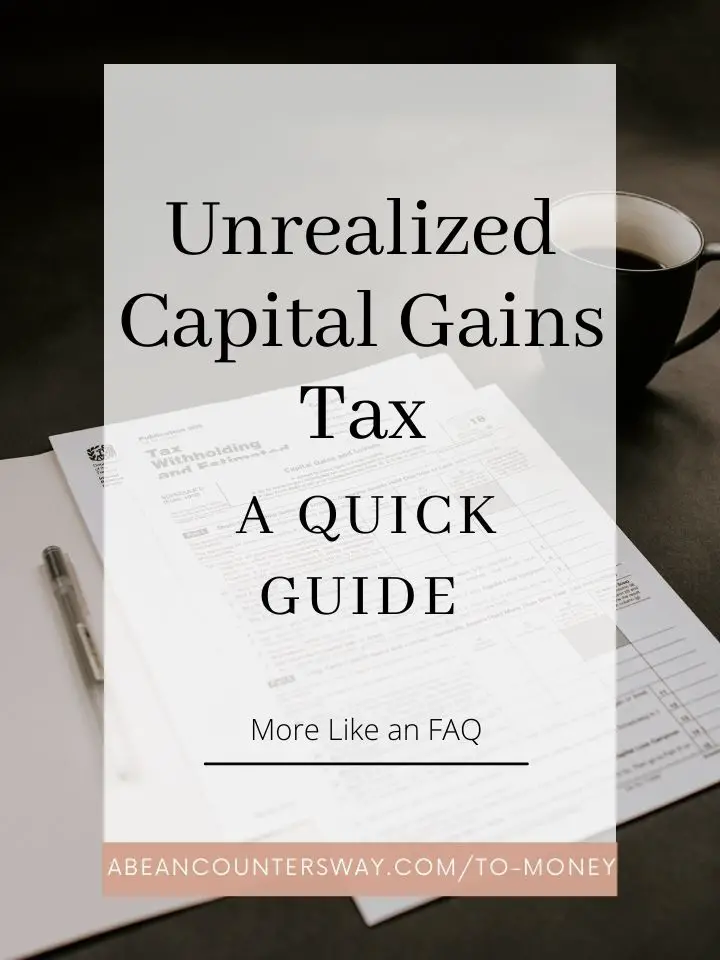Some potential traps pull people towards a lifestyle that borrows from their future. Some are fairly obvious like running up a credit card balance. But their other money traps that can be difficult to recognize. A failure to be cautious with purchases has caused many people to experience financial difficulty. In fact, most people don’t even have $1,000 saved up in the bank and this account to protect them from an emergency. A study by The AARP (October 2019) found that more than half of American households (53 percent) lacked an emergency savings account, including a majority of people over age 50.
There is big money in getting you to believe you are saving money by buying more. The reality is that many industries earn money when you don’t understand the full financial picture.
That’s why you should be mindful of these ways you may be living beyond your means.
Ways you may be living beyond your means:
#1 Buy Now Pay Later
Like me, you probably know many people who don’t think of the overall cost of things. Instead, they think, oh, it’s just a payment. A long time ago, I bought an off-road ATV with this mindset. I thought, wow, it’s just sixty dollars a month. Fortunately, I have always watched my finances closely. I started to look at what I was actually regularly using and the monthly cost, needless to say, I sold the quad two years later at a pretty sizable loss.
I know people who make a lot of money, and yet they still live paycheck to paycheck because they bought so much stuff on the buy now pay later plans that they are using their high earnings to try and pay off their old debts.
#2 Lottery gambling
The lottery is an interesting way to invest your money since the returns may be very good if you win. For example, if you invest $2 in a lottery ticket and you win, you could win many millions. Did you know that the odds of even winning your money back on a Powerball ticket is around 1 in 24? If you spend $24 dollars over time, you can expect to win an average of about 1 dollar back.
The odds of winning the big jackpot is one in 292 million. You might say okay, every time the lottery gets over 292 million, I will play, but what if there are two winners? Now you will split that amount, so, when the lottery gets over 292 million, odds are pretty good that there will be more than one winner. According to a study by BankRate.com (Dixon, 2019), the average American spends just over $80 a month on lottery tickets. That’s almost $1,000 a year. If you invest that money in the stock market and earn an average of 10% a year, you will have over half a million dollars in forty years. You could say that playing the lottery over the course of their lifetime is a huge reason people don’t end up with retirement savings.
#3 Sports Betting
Digital sports betting has become extremely popular. This may be fun but if you are one of the many people who think they are going to make money on these platforms rather than lose, well, I hope you are right, but the likelihood is that you’re overconfident in your abilities and your luck. Companies like Draft Kings and Fan Duel which are encouraging people to sign up by offering large incentives, and at times extra free money to increase your bet with. They know that by getting you to use their “free” money to bet larger, they will get you comfortable with larger bets and thus they will take more of your money. Casinos are located in these opulent structures for a reason: they make a lot of money. But from whom do they make a lot of money? It’s the patrons of the casino who are losing their hard-earned money.
No matter what the odds are, at the end of the day, The house always wins.
#4 Faking it until you make it.
A desire to show off your wealth even when you don’t have it. Some young people live an Instagram lifestyle. It’s not a money trap, per say, buy seeing all of the great things everyone else is bragging about having can make you feel like you are missing out. It can make it easier to thing well, this person just got this new brand name watch, or bag, or clothes… or whatever. Many people on Instagram are just doing what I have heard called, fronting their money. This means they are in that number one debt trap of buy now pay later. They are living way beyond their means just to show off to their followers.
Then when it comes time to pay the bills and these people realize they need to get serious and reign in their spending. They end up posting less. They start feeling less important and this can lead down the road to depression. This life style can have big ups that cost a lot of money, and then big emotional downs when it comes time to pay.
#5 Under Estimating the Cost of Trips
We live in a culture here in America where people really live on their emotions. They say, “I’ve worked hard, I need a vacation.” They plan for that vacation to Hawaii or that trip to Disneyland.
Speaking of Disneyland back in the early 2000’s I had a season pass to Disneyland and California Adventure. I went all the time. The pass cost around $300 a year and it included parking. After I the pass expired, I occasionally went back. I realized that over the years the park had gotten much more expensive and much more crowded. Just prior to the pandemic it was always packed and the price of a two-day park hopper is the same as the season pass. I asked an employee when the best days to come to avoid the crowd and he said, “This is the best day, I’ve seen in a long time.” I asked why it’s been so crowded and he said, “Once Disney went to monthly payments for season passes the park filled up.” In other words, people didn’t want to, or couldn’t pay all at once to go to the park but they could afford the payment plan, and the higher overall cost that came with it. These people were spending a lot of money on their trips to the park, and falling into the buy now pay later money trap.
#6 The Car
There are certain people who insist on just driving brand-new vehicles. They discover that they can get a better automobile on a lease for the same monthly price as if they bought it outright. However, despite this belief, they are not receiving the most value for their money. Regardless of what automobile someone drives, we shouldn’t make assumptions about them based only on that. In other words, it’s only a means of transportation. In most cases, when I see someone driving a flashy new automobile, I feel relieved that I don’t have their car payment, this keeps me from envying them. According to Credit Karma, in 2020 the average American paid $568 a month for a new car. These are pre-chip shortage prices. The price of a new car has gone up quite a lot this year. In addition, insurance premiums have gone up. Keep in mind that the automobile will only be worth a fraction of what you spent for it in a few years.
#7 Daily Eating and Drinking Habits –
Numerous individuals have expressed concern about the financial burden of a Starbucks habit. And they are absolutely correct. It is the little things that add up. The fact is that a $4 cup of coffee is not the root cause of your financial difficulties. However, if you are living paycheck to paycheck, it is not a smart idea to go to Starbucks every morning. With out realizing it you can easily spend more than $100 dollars each month. It all adds up.
Along this same line of thought, think of how much money you spend each day on lunch. For a long time, right at noon I would get into the car and head straight to the fast-food restaurant. Then I realized two things:
- I had gotten fat because I was not eating well. and
- I hadn’t been saving as much money as I used to because lunch cost from 5 to 10 a day.
I estimated that I was spending around $200 dollars a month on lunch. Now I make my lunch at home and take it to work, it costs between $2 to $3 for the ingredients and its much healthier.
#8 Education
Now you might say, no way, education is totally worth it. But in truth, there are millions of Americans who spend years trying to work off student debt. Many courses, in college or even online, are expensive and are simply for enrichment.
I have been seeing YouTube Ads for a Master Class on guitar with Carlos Santana. Sounds fantastic! But how much is that going to help my guitar playing? Am I going to earn money from it somehow? These classes are interesting and fun but they will not help you on your path towards a degree or towards learning that you help you in the future.
A basket weaving class may be fun, but how many baskets are you going to weave? Are you going to sell these baskets? Couldn’t you just look up basket weaving on YouTube? The reality is people who take a course on basket weaving are just taking it for entertainment. That’s okay, as long as you recognize it’s for entertainment.
I am guilty of spending too much on education. I get 50 dollars extra per month from my job because I have a masters degree in Education. Yes, teachers work their way up the pay scale according to how many units of education they have, but there are much cheaper ways to get these units than taking graduate level classes. In my case I got the Masters degree so that I could have the option for career advancement, but as I get older, I realize that there are less years left to make up for those costs.
#9 No Follow-Through on Non-Passive Investments
This one really applies to me. I can’t tell you how many times I’ve started a blog and then given up. Here I am, back at it again. I currently own about 20 domain names that I likely will never use and are not worth any money. I’ve paid for years of web hosting without earning much money back on their associated websites. Of course, I have had a few successes, I once sold a domain for a thousand dollars, and my family did have a somewhat successful online shop for a while. The bottom line is if you’re going to invest the money in a non-passive investment, be sure you do the work.
#10 Buying Too Much in Bulk
How many of you know someone who had a garage full of toilet paper during the pandemic? I bought a bidet, and I have to say it’s been a fantastic investment. Plus, it gets you so much cleaner. (Is this too much information?). It’s great shopping at Costco or Sam’s Club but you have to recognize per item cost and ask yourself. “Do I really need everything in this large pack?”
We can find ourselves in debt if we fall into these money pitfalls too many times. I wrote an article called 4 Steps to Get Out of Debt for Good on a strategy I used to get out of debt.
For most Americans, their financial picture goes like this: you make money from a job, some of it goes into your 401k, some goes into your bank account after you pay taxes and pay your bills and then you wonder where the money went.
Making a financial plan for your money is one of the most straightforward and effective ways to begin improving your financial management skills. Rather than wondering where your money went, you may now direct your money to the place will you believe it will make the most additional money for you. One of the simplest ways to do this is to simply follow the 70-20-10 rule, which states that for every dollar you earn from now on, 70 cents is the maximum you can spend, fifteen cents is the minimum you should save, and ten cents can be used to pay down your debt. Now if you have high-interest debt, you should look for a way to reduce your interest rate or strive to put even more money towards paying off your debt.
The most difficult part of sticking to this type of financial plan is getting through the first few months. Once you get used to a budget minded lifestyle it’s not too hard to keep it going, as long as your careful to avoid the money pitfalls we talked about earlier.
Falling into these money pitfalls will not only cost you the lost money but there can be a large opportunity cost. Living beyond ones needs leaves less money for investments, emergencies, and ultimately it keeps you from buying assets that will improve the quality of your life and can appreciate. Like real estate for example. You might think that real estate is expensive right now, so there is no way you’re going to be able to afford a home. Well, perhaps that is a good way to think if you’re just looking to live in a big expensive home. But what if the real estate market crashes? Now you can buy a home for much less, this asset can appreciate, you could rent it out for cash flow, or you could live in it. But you will only have the opportunity to invest in this house if you have your credit picture in order, and if you have some money in your savings or investment fund that can be used as a down payment.
Speaking of investment funds, if you can keep a budget and not fall into financial traps early in life, then you may have money to invest. Over the past 50 years the stock market has gained an average of 10.9%, while inflation has run at an average of 4.1%. In other words, 1 dollar in put into an average stock market index fund would become 21.25 after 20 years. If you start investing when you are young, you could retire very wealthy. There is a saying that time in the market is more important than timing the market. The meaning behind this is that, like with betting, it is difficult to pick individual stocks and get in and out of them at the correct time. If you study and work at it the timing of the market may work for you, but for the rest of us, history shows that if we diligently invest over the course of our lives, we will do well.
Financial Education
I believe that in most states, we do our youth a disservice by not teaching them about money and finance from an early age. High school students should have to be knowledgeable to how credit works, and how it can be used in both good and bad ways. There are many inspiring books out there that kids should be reading. Right off the top of my head I think, Rich Dad Poor Dad by Robert Kiyosaki, and The Millionaire Next Door by Tomas J. Stanley should be on the reading list.
In Summation:
It is important to avoid living beyond your means. To do this it is good to keep in mind the financial pitfalls that are easy to get caught in. If you can follow a plan for your money, you will have more money to invest as your investment grows this will allow you to seek out other opportunities to buy assets. It is important for everyone to learn how to manage their money, and this should be taught in school.
Works Cited
Dixon, A. (2019, December 12). These Financial Vices Cost Americans More Than $2,400 Per Year | Bankrate. These Financial Vices Cost Americans More Than $2,400 Per Year | Bankrate. https://www.bankrate.com/surveys/financial-vices-december-2019/.
Harvey, C. S. (2019, October). Unlocking the Potential Of Emergency Savings Accounts. American Association of Retired People Public Policy Institute, https://www.aarp.org/content/dam/aarp/ppi/2019/10/unlocking-potential-emergency-savings-accounts.doi.10.26419ppi.00084.001.pdf
Ward, Paris (2019, June 27). What Is the Average Car Payment? | Credit Karma. Credit Karma. https://www.creditkarma.com/auto/i/what-is-average-car-payment.








